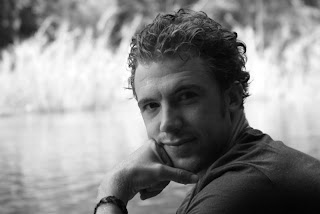 Yesterday I visited the rubbish dump on the edge of Mae Sot, a Thai town across the river from Burma. The dump itself was a predictable reflection of the consumption of a medium-sized Thai city. Plastic bags, decrepit toys, batteries, tin cans and the occasional ruined soccer ball stretched out for hundreds of meters.
Yesterday I visited the rubbish dump on the edge of Mae Sot, a Thai town across the river from Burma. The dump itself was a predictable reflection of the consumption of a medium-sized Thai city. Plastic bags, decrepit toys, batteries, tin cans and the occasional ruined soccer ball stretched out for hundreds of meters.But what's trash to some is the livelihood of others. Atop the garbage pile, more than 300 illegal Burmese immigrants have built small huts and call the dump home. They spend their days combing through the rubbish for a meager harvest - plastic and glass bottles and aluminum cans that they can cash in for petty change. Some have lived here for nine years.
"It's better than Burma," one mother told me as flies swarmed around her face. "We don't have work in Burma. Here we earn forty to sixty baht a day ($1.30-$2). There are many problems."
 She told me that three huge bags full of plastic bottles will only earn her 30 baht, about a dollar. With that money she buys vegetables to cook for her family with rice. Sometimes they buy a fish.
She told me that three huge bags full of plastic bottles will only earn her 30 baht, about a dollar. With that money she buys vegetables to cook for her family with rice. Sometimes they buy a fish. The hardships aren't only economic; the work is dangerous. Last week as rummagers dug through the plastic, a bomb exploded wounding 14. Rumors suggest that the bomb was planted outside a rebel leader's house and was taken to the dump by accident where it was detonated by the scavengers.
It's another twist in a spate of blood-letting in the town. Two weeks ago, Padho Mahn Sha, the leader of the Karen National Union, carrying out an ethnic insurgency in Burma, was gunned down in his own house. I interviewed Mahn Sha in that house three months ago. He was a man respected for his wisdom and diplomacy.
Back at the dump, a Burmese monk has come to give stuffed animals to the children and food to the families. He took part in the protests in Burma last September and is now exiled from his homeland. I asked him about the future of his country and he looked around at the garbage for an answer.
"The poor is not forever," he told me. "And the rich is also not forever."


1 comment:
May all of us who are richer get poorer (and in a way, richer) by giving to the poor.
Moving and well-written story,Jacob. That wretched dump looks almost beautiful in your photo.
Post a Comment